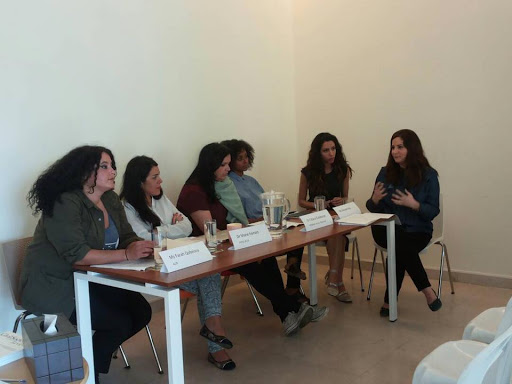Talk: Lebanese, refugee, and migrant women in Lebanon
On the 19th of april, Lebanon Support organised a talk to discuss the 2nd issue of its Civil Society Review* on Lebanese, refugee and migrant women in Lebanon. Through collective and individual trajectories, this issue aimed to shed light on women’s role in social change, whether in private spheres or in collective and political action. Similarly, the talk discussed itineraries and stories of agency, and provided analysis and insights into the logics of exclusion and discrimination in the local social fabric, with interventions based on the papers published within this issue.

Dr Chiara Calabrese’s presentation addressed women’s experiences in the southern suburbs of Beirut, and their engagements with parties like Hezbollah, focusing on the social aspects and plurality of such engagements, and their roles as spokespersons of a political party.
Marie Kortam presented the story of Nour, a Palestinian woman living in a refugee camp in Lebanon. This illustrated how an individual trajectory of agency can contribute to deconstructing widespread narratives of victimisation.
Afterwards, Farah Kobaissy examined the process of unionising domestic workers in Lebanon. Her presentation posed the question of how initiatives aiming for change reproduce the same power structures. It highlighted the potential of such an endeavour, as well as the challenges faced by workers in building their union.
Finally, Nisreen Kaj talked about her own experience as a Lebanese Nigerian woman and her fight against racism on an individual level, as well as part of initiatives and organisations. She presented her project “Mixed Feelings” that created awareness against racism in Lebanon through challenging whiteness being tied to Lebanese nationality.
The discussion that followed mainly revolved around the need for concerted action among various women groups in Lebanon to address all the issues they face, in order to bridge between them.
* The 2nd issue of the Civil Society Review was published in December 2016, in partnership with Najdeh and Diakonia. A preview of it is available here.

